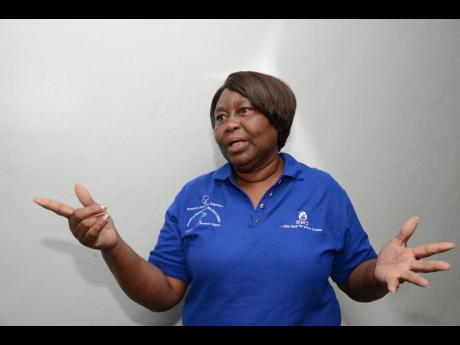ILO-funded transition of farmers, fishers into formal system begins - Domestic workers say their next, starting April
A project between the Government of Jamaica and the International Labour Organization, or ILO, which is intended to shift businesses and workers in three sectors into the formal economy, has so far made progress on two – agriculture and fishing....
A project between the Government of Jamaica and the International Labour Organization, or ILO, which is intended to shift businesses and workers in three sectors into the formal economy, has so far made progress on two – agriculture and fishing.
The third sector, domestic services, is still in talks regarding technical and financial assistance to shift to the formal economy by the end of April, head of the Households Workers Association of Jamaica, Shirley Pryce.
The 15-month Jamaica Formalization Project that came to fruition last year will see Jamaica receiving ILO financial and technical assistance to strengthen policies on income security, social protection, and fund a public awareness and sensitisation campaign to shift businesses and workers into the formal economy.
The programme falls under the government’s pandemic recovery efforts, and is aimed at mitigating the devastating impact that the spread of the COVID-19 disease has had on the large informal workforce, including 45,000 female domestic workers and 200,000 fishers/agricultural workers who are not eligible for social security schemes and emergency economic relief programmes.
Jamaica and ILO signed a memorandum of understanding for US$70 million of financial assistance from the ILO to bring 100 farmers and fishers into the formal economy over the next 11 months.
The state-owned support service Jamaica Business Development Corporation will provide assistance with the formal registration of the workers and training for participants to address areas such as business development, product development and structuring of enterprises.
Business operators will also receive guidance on formal registration of their businesses, opening a business bank account, financial record keeping, creating business linkages, identifying and accessing new markets and the rudiments of accessing financing, including grants among other subject areas.
Other collaborating partners for the one-off programme for the farmers and fishers include Rural Agricultural Development Authority, Jamaica Fishermen Cooperative Union, Ministry of Labour and Social Security and the Jamaica Confederation of Trade Unions.
But as to what’s in store for the domestic workers, and what that programme would entail, that information was not forthcoming from officials.
Still, Pryce said steps are being taken to create a committee incorporating organisations such as the Bureau of Genders and Affairs, HEART Trust/NTSA, and University of Technology Jamaica to oversee the project once implemented.
“Ours will come shortly. We are through the process and we are looking forward to that signing because it is important that domestic workers understand the importance of contributing to the National Insurance Scheme and getting into the formal system before they retire,” she said. “Farmers and the fisherfolks fall under one ministry, and so it may have been easier for them to get things going.”
It’s not clear how many of the 45,000 household workers identified by the ILO as not eligible for emergency economic relief programmes will be covered by the formalisation project. ILO did not respond to requests for clarification. However, the Households Workers Association of Jamaica itself is looking to set up a training institute for those who may not benefit from the programme, Pryce said.
Formalisation of Jamaican workers has been the subject of dialogue between Jamaica and ILO since at least 2014. Those discussions led in 2019 to the ILO Caribbean Office supporting the development of the National Transition to Formality Action Plan 2020-2022.
But even in the formal system, agricultural workers and businesses are often vulnerable to nature and other forces. And they often turn to the Minister of Agriculture & Fisheries for help. In recent years, as part of its support programmes, the ministry has been prodding informal operators to get regularised through their associations or other means.
As further incentive, state-supported programmes are more inclined towards those who are formalised. Minister Floyd Green just announced, for example, that 220,000 registered farmers and 26,000 registered fishers will, as of March 1, 2021, have access to the newly implemented group health and life insurance plan, called AgriCare, with coverage provided through Sagicor Life Jamaica.

